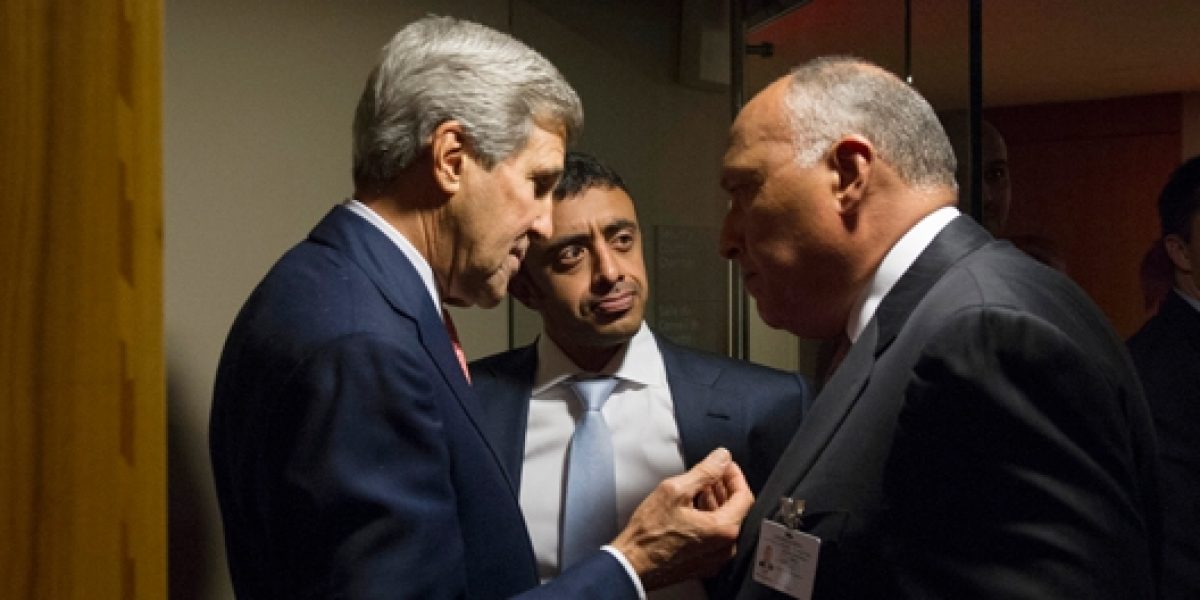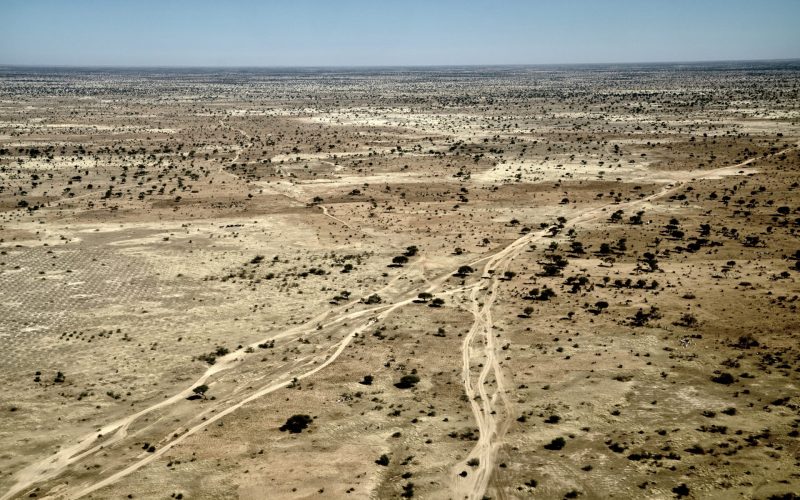He presented a four step strategy which essentially consists of building an international coalition, without involving US ‘boots on the ground’, that would support the Iraqi military and ‘moderate’ Syrian rebels in confronting IS and wresting territory back from its control.
Obama said that the role of the US would also consist of continuing with the airstrikes on IS positions in Iraq, along with the possibility of targeting IS strongholds within Syria.
IS, in turn, responded with the release of another video in which a British aid worker was beheaded for being the citizen of a country that supports US strikes against IS.
Given this context, how is this US-IS confrontation likely to unfold, and what are some of the complications that Obama’s approach seems to ignore?
First, it should be remembered that after its dramatic capture of Mosul and Tikrit in June, IS has not been able to register any substantial victories in the Iraqi battlefield. In fact, IS has been on the receiving end in Iraq, having to give up the Mosul Dam and areas in the Anbar province. However, IS has been able to gain territory within Syria, effectively coming to control the three eastern provinces of Raqqa, Deir ez-Zour, and Hasakah. So, as the US-led coalition provides further support to Iraqi forces, and if the Iraqi forces are able to hold territory gained from IS and quell the non-IS section of the insurgency, IS operatives can be expected to retreat into Syria. This could turn Syria into the place where Obama’s goal to ‘degrade and destroy’ IS will be fulfilled.
Therefore, Obama’s policy on the Syrian situation will be crucial in this regard. It is precisely over this point that US policy has been utterly confused. While supporting the rebellion but without decisively committing to remove the Assad regime – either by implementing a no-fly zone or arming the rebels with sufficient anti-aircraft weaponry – the US has inadvertently allowed for IS to gain a solid foothold inside Syria, and emerge as the strongest group within the Syrian rebels.
Obama’s invasion of Syrian airspace will not yield any immediate gain in favour of the Syrian rebels. Even if sufficient intelligence provides for precise targets, and we discount the civilians deaths likely to drive ordinary Syrians to embrace IS over the US, non-IS rebels are not well positioned to take over control of IS territory. Instead, it is more likely that Syrian troops will reap the immediate benefits of a US attack on IS inside Syria.
Therefore, Obama will need to make up his mind about Assad, and either make an alliance with the regime or commit to removing him.
Obama will also need to be clear about the role Iran would play in his multi-nation alliance against IS. Contradictory approaches to Iran’s involvement, such as those that were displayed at the recent Paris conference wherein after having declined an invitation for Iran in order to please his Arab allies, US secretary of state John Kerry then suggested that the US is open to a conversation with Iran, will only serve to alienate Iran. With Turkey and other Arab countries not willing to provide ground troops, Obama must understand that Iran is his best possible ally in the region. Iran is already leading the anti-IS Shia militias inside Iraq and it is a supporter of the Syrian regime, with whom it might be able to effect a political transition to the liking of the US.
However, recognising these gaps on Syria and Iran is not to suggest that Obama’s overall approach to confronting IS is commendable. It would have been better for the US to lobby behind the scenes and help defuse the cold war between Turkey, Iran, Saudi Arabia and Qatar, in order to help these countries form a united front against IS. For, regardless of whatever lobbying the Obama administration is able to accomplish at the ongoing UN General Assembly meeting and increase the number of states in his anti-IS coalition, local regional powers such as Turkey, Egypt, Jordan, Saudi Arabia and Iran must recognise that IS is a threat to their collective raisons d’État, before it is a threat to the US.
Without first getting these Middle East actors to trust each other, Obama’s vision of a military alliance will be perceived as yet another US/western invasion of the Middle East. This perception will not only cause the US to become more vulnerable to terrorist attacks, whether on its soil or elsewhere, but also present jihadists with a chance to heal their crippling divisions in order to confront their biggest external enemy, the ‘crusading Christian and Zionist western regimes’.
This is significant because, prior to the increased US intervention against IS, the jihadist world was divided and largely consumed by intra-jihadist factionalism between al-Qaeda and IS. Though this is still the case, we can expect that these groups, instead of fighting each other, will now refocus their combined energies against the US and its allies. We are already witnessing renewed calls for such steps by senior al-Qaeda members; figures that are based in countries ranging from North Africa to the Indian subcontinent. There is no suggestion from IS that it will reciprocate in agreement. If such a reconciliation were to come about, we are likely to witness it through actions rather than words; under the command of its current leader, Abu Baqr al-Baghdadi, IS tends to remain silent until it is ready for a grand display.
In this way, Obama’s anti-IS strategy is not only flawed militarily and politically, but it might end up having an effect opposite to the one intended. IS consider nation-states as idols to be rejected, and armed with its ideology of martyrdom, the group will not be deterred by an inflated number of states in alliance against it. Nor will it will forget that the US brought these states together. Instead of degrading and destroying IS, Obama can potentially expand and strengthen IS as a direct threat to the US, even as they are losing territory in Iraq and Syria. Much like George W. Bush’s overblown reaction to 9/11, which only helped fuel the rise of IS in Iraq, Obama too seems to have overreacted to the beheading videos. IS, after all, consistently insists on calling jihadists to migrate into the territory it holds, rather than engage in al-Qaeda style 9/11 tactics. In this, it is indeed a proto-state and an insurgent army, rather than a typical international terrorist group. Additionally, neither have US intelligence agencies picked up any imminent threat emanating from IS against the US.
Though his strategy is not identical to Bush’s, one can only hope that in his enthusiasm for an expansive military response rather than a policy of containment, Obama will not leave a similar legacy of pain and destruction in the Middle East and the rest of the world.
The opinions expressed above are solely that of the author. They do not necessarily reflect AMEC’s official view or policy on the topic under consideration.








